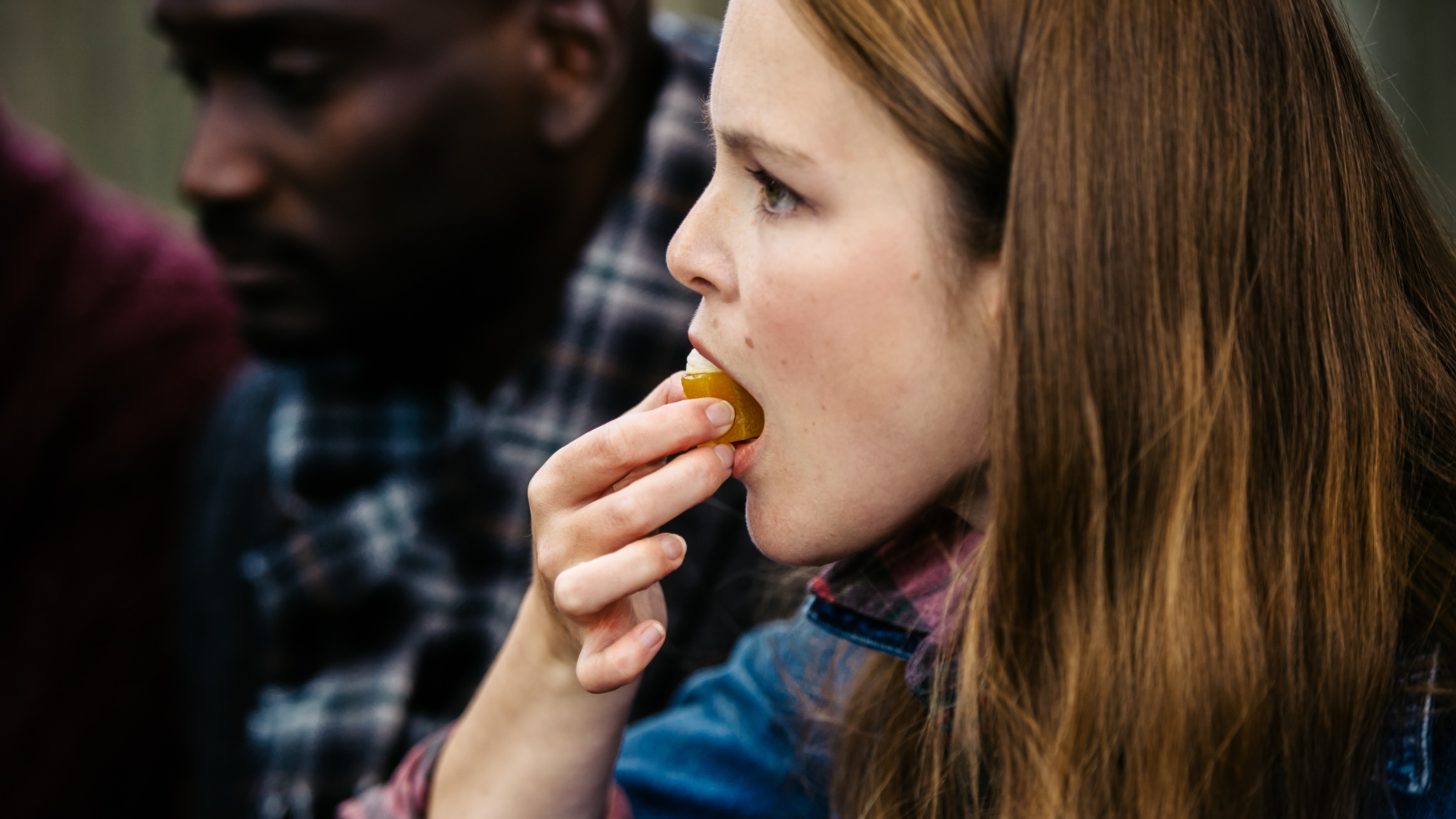A great meal supersedes all expectations, Barber says.
Dan Barber: Well I’ve had so many great meals. But a part of it is just like the context, you know? And that’s another thing that chefs really understand is like . . . You know there’s great cooks and there’s great chefs. And chefs, I think, understand that context is just as important as the food. So I told you about food stories, and I think that plays into that. Not that I’m a great chef, but I think that it’s an important aspect of being something more than just, you know, kind of ego driven chef. But the other part of it is like controlling the context. So . . . And that’s very hard to do, especially in Midtown Manhattan or anywhere in Manhattan. It’s very hard to like get people to think about other things than their job or their hectic life. And again, I point to Mario Batali. I think he does it well. You walk into his restaurants and you get a feeling for something that’s much larger than just the food that’s on the plate. My own personal experience is, you know, I was stodging . . . I was doing this internship in France for several years even. And at the end of it I treated myself. I took a ... down to the south, and I had a meal when Allan ... was really just starting. I mean he’d just gotten three stars at ..., and he was the up and coming guy. I mean now he’s the most famous chef in the world, but back then he was really in the kitchen. And I had a meal that I’ll never forget because, you know, it was my last time in France and it was just like . . . It was really something to behold because everything sort of came together at that meal. It was an extraordinary meal, and I remember crying over the pea soup. I got so tired, too. I was so rundown, and I just remember eating the pea soup and just crying because it was just such an expression of Southern France. It was like it had all these Italian influences in it, and it was very light, and you could see the future of cuisine. And I was just tasting it. And I had been in Paris where it was quite traditional. I was in a very traditional, old school restaurant. There was lots of butter and cream, and delicious, and great, but you saw this thing that was not just a master at work. It was a master at work within the right environment that conveyed that. And those kind of meals are just like . . . they are so priceless. You know so . . . I mean it was a three-star restaurant, so it’s like a little predictable that you’d have this great meal there. But I actually did . . . It actually really delivered on what . . . It’s so hard, you know? Like it’s so hard to walk into a restaurant and have the expectation level. The press, they tend to play up so much, and they . . . You know these chefs in these restaurants you go in, I feel like 99.9 percent of the time you’re like a little bit disappointed. So it’s those chefs that can really reach those heights. And they can’t just do it through the food. Chefs know that. Or you go the other way, like the David Changs of the world who, you know, under promise and over deliver. You know and that’s the great . . . That’s the great quality of chefs is when you can have an environment in your restaurant that you walk in, and you’re a little bit like, you know . . . The ceilings are low. Or your . . . you . . . There’s paper on the tables like at Blue Hill New York. Or you know the glassware isn’t so great. And then all of a sudden the food comes out and it’s blow away incredible, you know? And it’s that way because it’s met your expectation and actually exceeded it. When does that ever happen in this world today? It’s like whether it’s a movie or whatever it is, it’s like it’s always a little bit disappointing from what you’ve expected. And so when you have an experience that can meet that expectation or even supercede it, it’s like man. It’s just incredible. So controlling the context is a big part of it, and that’s a fight in New York. And one of the great advantages that Stone Barns has is we’re out in this idyllic landscape. We have the opportunity to control people’s context and people’s understanding of what they’re eating. And that’s . . . That makes me, again, look like such a better chef. Recorded on: 2/11/08






